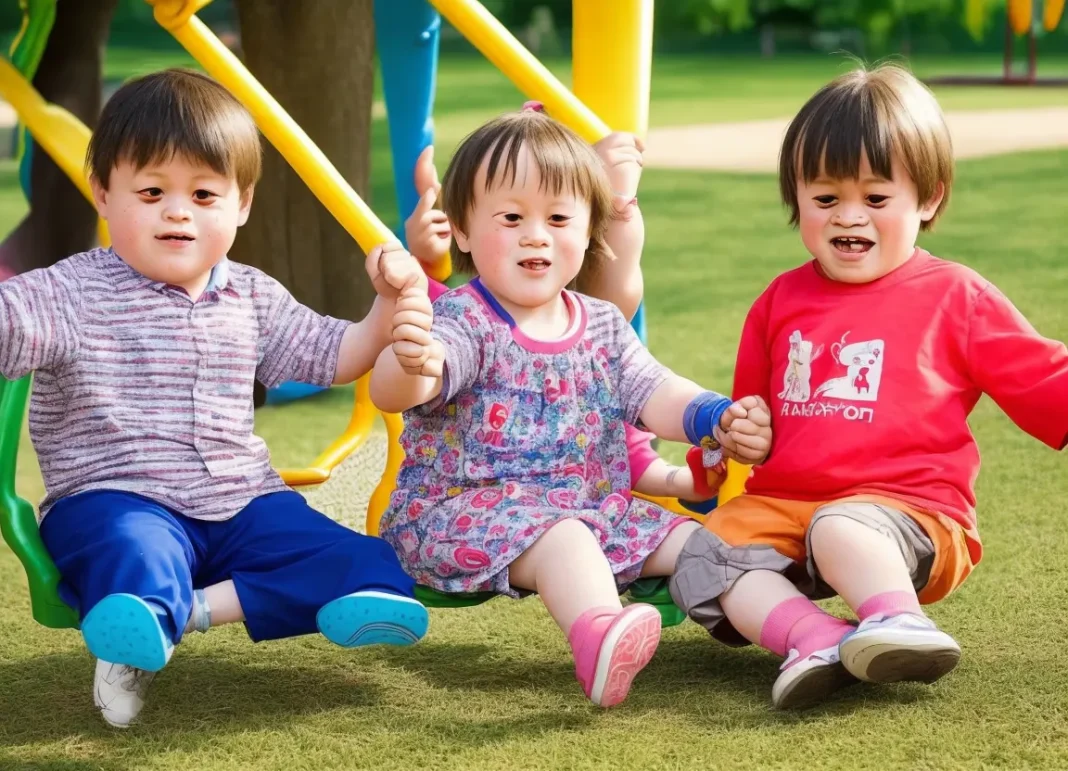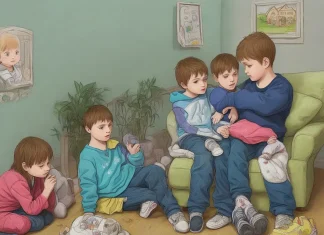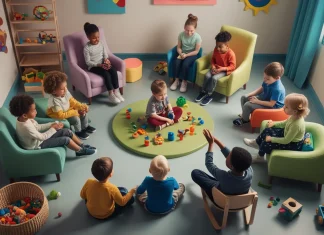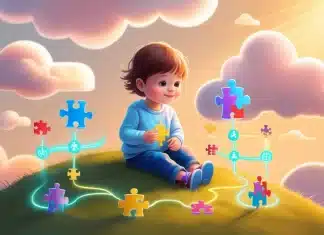Introduction
In a world filled with diversity, each child is a unique treasure. However, some children face distinct challenges that require understanding, support, and specialized care. In this article, we will delve into the fascinating and often misunderstood world of Down Syndrome Autistic kids, shedding light on their journeys, needs, and the importance of inclusivity.
Understanding Down Syndrome
Genetic Basis and Characteristics
Down Syndrome, also known as Trisomy 21, is a genetic disorder caused by the presence of an extra chromosome 21. This additional genetic material leads to specific physical and cognitive characteristics, such as almond-shaped eyes, a small nose, and intellectual disabilities.
Common Medical Issues
Children with Down Syndrome may also be susceptible to certain medical conditions, including heart defects, hearing impairments, and thyroid problems. Understanding and addressing these issues is vital for their overall well-being.
Understanding Autism in Kids

Spectrum of Autism
Autism, on the other hand, is a spectrum disorder, meaning it presents in various ways and to varying degrees. Some autistic children may have difficulties with social interaction, while others may experience sensory sensitivities or engage in repetitive behaviors.
Behavioral Traits and Challenges
Autistic kids may exhibit a range of behavioral traits, from intense focus on specific interests to difficulties in understanding and expressing emotions. These unique traits can be both rewarding and challenging for parents and caregivers.
The Intersection of Down Syndrome and Autism
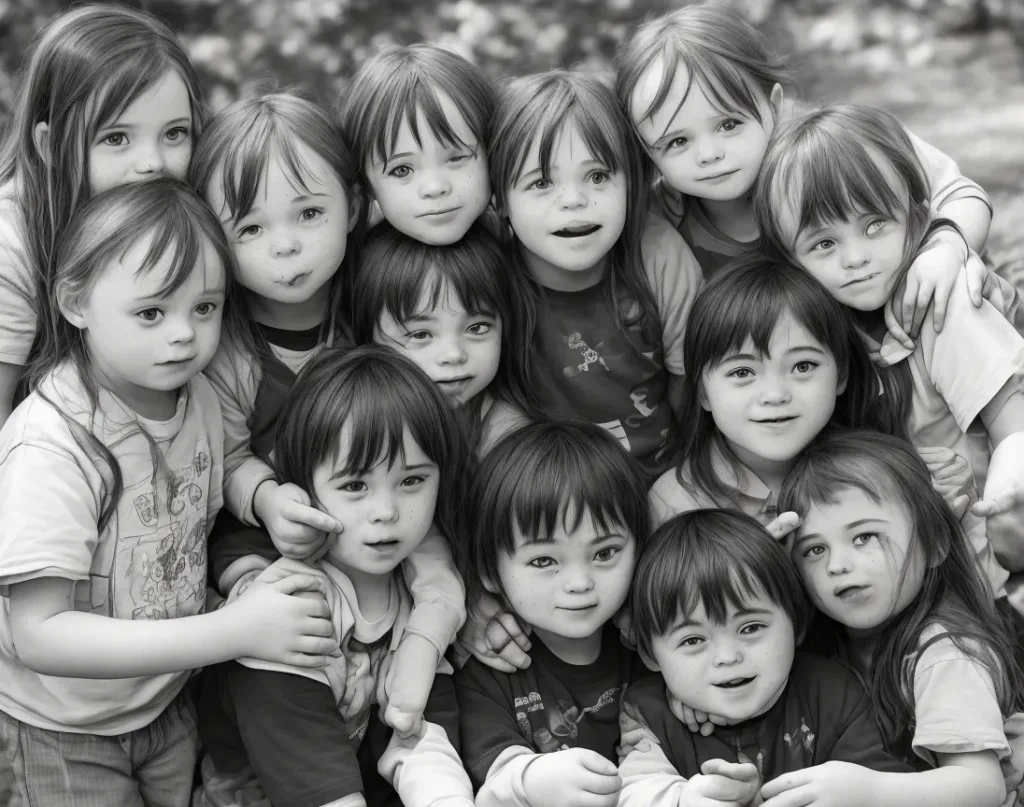
Overlapping Features
What makes the journey of Down Syndrome Autistic kids particularly intriguing is the overlap of characteristics from both conditions. Some children are diagnosed with both Down Syndrome and Autism, which brings a unique set of challenges and complexities for families and professionals alike.
Diagnosing Down Syndrome and Autism in Kids
Screening and Assessment
Early detection is crucial for providing the right support. Screening and assessment tools help identify Down Syndrome and Autism in children, enabling early intervention and tailored therapies to enhance their development.
Treatment and Therapies
Multidisciplinary Approach
The treatment approach for these children involves a multidisciplinary team, including pediatricians, therapists, and educators. Tailored interventions can address specific needs, such as speech and language therapy, occupational therapy, and behavioral interventions.
Educational Strategies
Inclusive Education
In recent years, there has been a push for inclusive education, where children with Down Syndrome and Autism are included in mainstream classrooms. This approach fosters social interaction and promotes understanding among all students.
Individualized Education Plans (IEPs)
Individualized Education Plans (IEPs) are instrumental in providing a customized educational experience for these children. These plans outline specific goals and strategies to support their learning and development.
Supportive Services for Families
Counseling and Support Groups
Families of Down Syndrome Autistic kids often face unique emotional and logistical challenges. Counseling and support groups provide a safe space for parents and caregivers to share experiences and seek guidance.
Respite Care and Community Resources
Respite care services offer much-needed breaks for families, allowing them to recharge while their children are cared for by trained professionals. Additionally, communities can provide resources and programs designed to enhance the quality of life for these children and their families.
Breaking Stereotypes and Building Awareness
Challenging Misconceptions
Society often holds misconceptions about these children, assuming limitations instead of recognizing their potential. It is essential to challenge these stereotypes and focus on their abilities rather than their disabilities.
Celebrating Abilities
Each Down Syndrome Autistic child has unique talents and strengths. Celebrating their abilities, whether in sports, arts, or academics, contributes to their self-esteem and overall well-being.
Parenting and Nurturing Down Syndrome Autistic Kids
Emotional Support
Parenting these exceptional children can be emotionally taxing. Offering emotional support and practicing self-care are vital for parents and caregivers to navigate the journey effectively.
Creating a Nurturing Environment
Creating a nurturing environment at home is crucial. A structured routine, clear communication, and sensory-friendly spaces can make a significant difference in their daily lives.
Success Stories
Real-life Examples of Thriving Children
Despite the challenges, many Down Syndrome Autistic children thrive and achieve remarkable milestones. We share inspiring stories of these children to inspire hope and optimism.
Research and Advancements
Current Studies and Breakthroughs
The field of research and advocacy for Down Syndrome Autistic kids is continuously evolving. We explore the latest studies and breakthroughs that promise a brighter future for these children.
Future Prospects
As research advances and awareness grows, the future looks promising for children with both Down Syndrome and Autism. Innovative therapies and educational strategies hold the potential to unlock even more of their potential.
Navigating Challenges
Coping with Daily Hurdles
Day-to-day life can present unique challenges for these children and their families. Strategies for managing daily hurdles are essential for ensuring their well-being.
Addressing Social Isolation
Social isolation can be a significant concern for these children. Building strong social connections and inclusive communities can help combat this issue.
Promoting Inclusivity and Acceptance
Community Involvement
Communities play a pivotal role in promoting inclusivity. Events, support networks, and awareness campaigns can foster understanding and acceptance.
School and Workplace Initiatives
Inclusive education and workplace initiatives ensure that Down Syndrome Autistic individuals have opportunities to learn and work alongside their peers, contributing to a more inclusive society.
Conclusion
In the journey of Down Syndrome Autistic kids, we find not only challenges but also resilience, love, and boundless potential. By understanding their unique needs and abilities, we can create a world where every child, regardless of their differences, is embraced and celebrated.
FAQs
Can Down Syndrome and Autism coexist in the same child?
- Yes, some children are diagnosed with both Down Syndrome and Autism, although it presents unique challenges.
What are the early signs of Autism in children with Down Syndrome?
- Early signs may include delayed speech and social interaction difficulties.
Are there specialized schools for children with both conditions?
- Yes, there are schools and programs tailored to the needs of children with Down Syndrome and Autism.
How can I support a family with a Down Syndrome Autistic child?
- Offer emotional support, assist with daily tasks, and educate yourself about their conditions.
What advancements in research offer hope for these children?
- Ongoing research in genetics, therapies, and inclusive education holds promise for improving the lives of these children.

